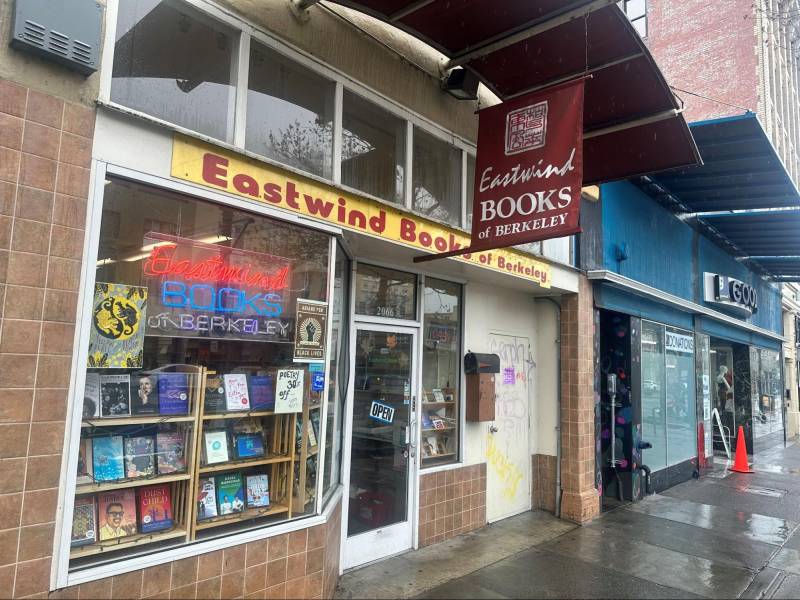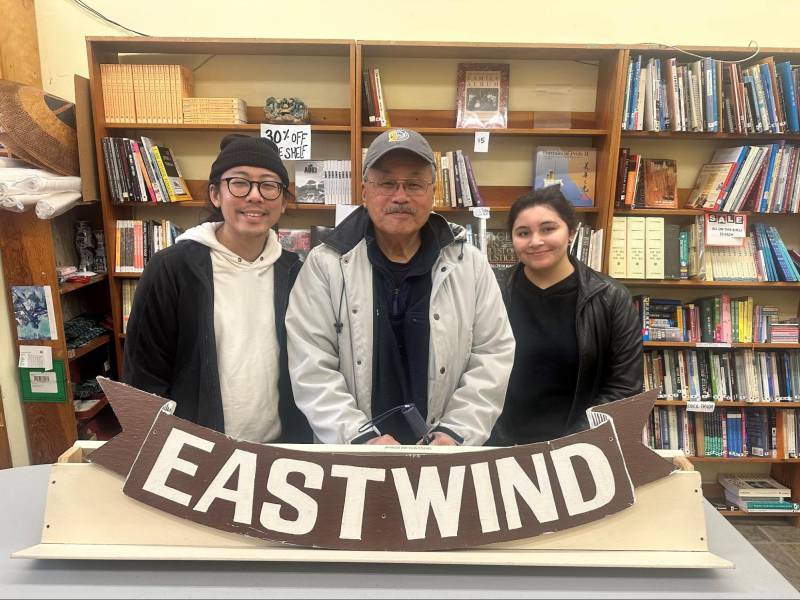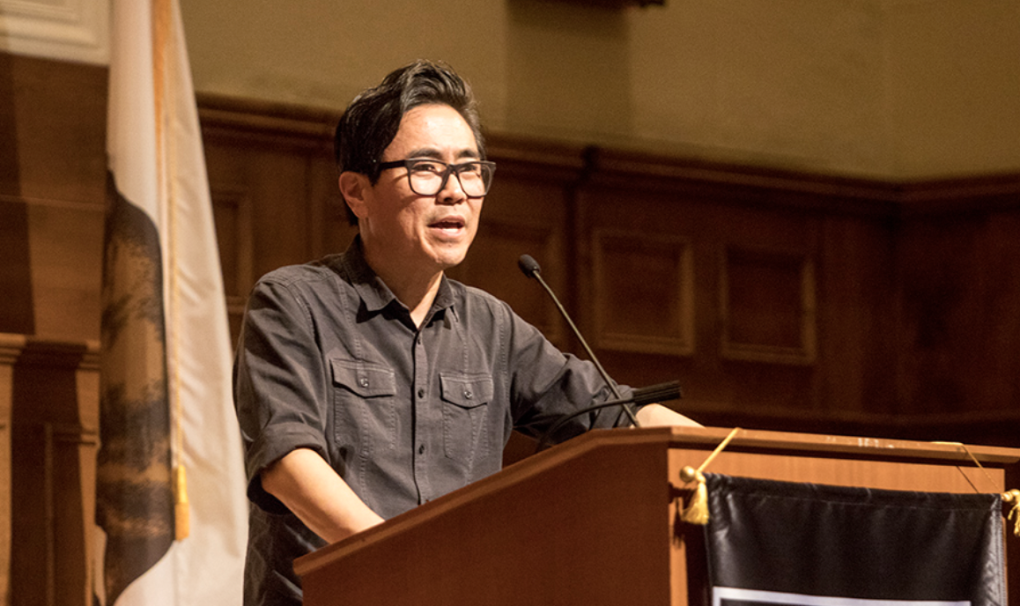When I visit Eastwind Books on Berkeley’s University Avenue in late March, the store is already starting to look a little bare. News has spread that one of the nation’s first Asian American bookstores is closing after 41 years of business. Discount signs for $5 books hang on the shelves, and sections of the store are being broken down.
“We’re all just cleaning shelves. We’re donating a lot of the center ones to other nonprofits,” says Banoo Garcia-Afkhami, an Eastwind Books employee since 2021.
“A lot of people have been coming in and they’ve been wanting merch,” Garcia-Afkhami adds. “They’ve been wanting postcards, they’ve been wanting things that remind them, like with our name on it.”
Eastwind Books has certainly been a “merch-worthy” fixture in the community — not only as a bookstore, but as an event space, publisher and local landmark for Asian American and ethnic studies. As someone who majored in ethnic studies at UC Berkeley 20 years ago, I still have vivid memories of sourcing school books from the packed, narrow store.

But Eastwind Books’ lease is up at the end of April, and Harvey Dong, who owns it with his wife Beatrice Dong, says they had to make some tough decisions.





